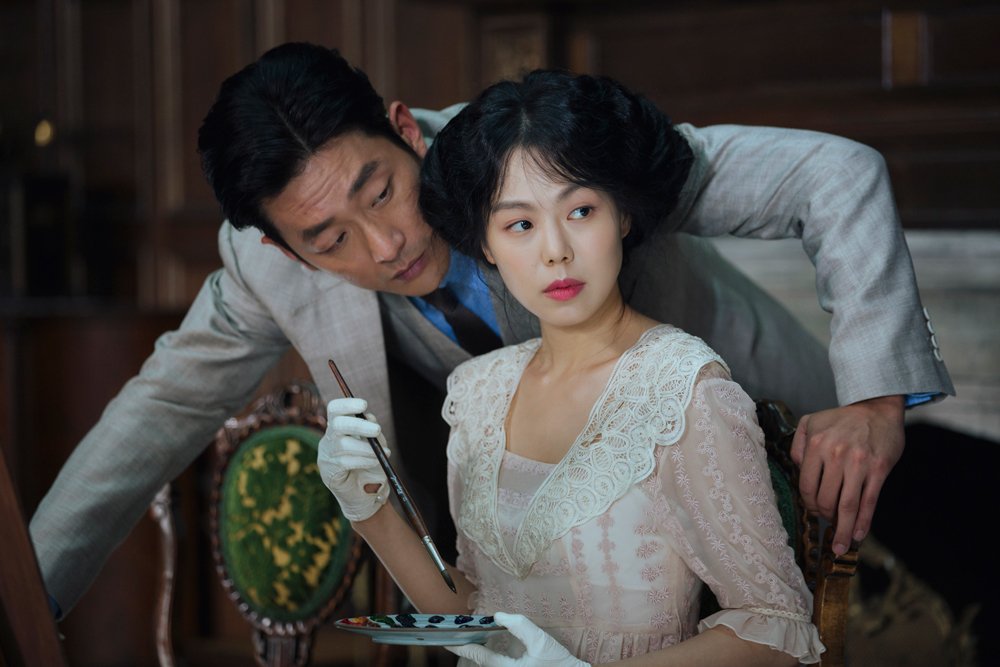“Ladies truly are the dolls of maids,” Tomako (Kim Tae-ri) says to herself, unbuttoning the corset of her liege Hideko (Kim Min-hee) some time early on in “The Handmaiden.” Tomako isn’t her real name, but the one given to her upon her arrival at the palatial estate of Hideko’s family, all of which is left is the young woman and her uncle (Jin-Woong Jo), and as the daughter of a gifted forger, Tomako nee Sookhee’s never been too attached to titles or for that matter, anything she’s received from her own family, whose struggles she hopes to leave behind. She sees her opportunity when she’s approached by Count Fujiwara (Ha Jung-woo), who lusts after Hideko’s money and sets a plan to seduce her into marrying him before turning her over to a mental asylum with Tomako’s help to suggest her instability. What Fujiwara doesn’t count on is that Hideko has a stronger attraction to Tomako than him, and this being a movie by Park Chan-wook, that’s hardly the only thing upsetting the best laid plans of its characters.

Though the lure of money exposes Sookhee and Fujihara as green-eyed monsters immediately, it is the pursuit of sex that ultimately drives Hideko, Tomoko and even Fujiwara to extremes and while “The Handmaiden” largely eludes Park’s penchant for inventive, brutal violence, the director trades it in for aggressive eroticism, packing the same transgressive punch. However, well after the shock wears off – even when featuring a gratuitous scene of carnal acrobatics that outdoes “Team America: World Police” in the number of positions depicted – there’s a depth of emotion that justifies every wild story flourish, with only the backstory of Hideko’s uncle feeling even slightly overdone. Park clearly delights in the occasionally ridiculous levels of decadence he heaps on this layer cake of deception and deceit, but “The Handmaiden” shows the filmmaker’s genuine tenderness as a real, if tortured love story forms at its core. At one point towards the end, Fujihara smiles as he says “It feels so great being so rude to a noble lady,” and while you can imagine Park uttering those same words after so mercilessly dismantling polite society, it would simply be one more misdirect for one of his most moving and unexpectedly swoon-worthy films.
“The Handmaiden” opens on October 21st in Los Angeles at the Landmark, the CGV Cinemas and the Arclight Hollywood and in New York at the Elinor Bunin Monroe Film Center and the Sunshine Cinemas. A full list of theaters and dates is here.




